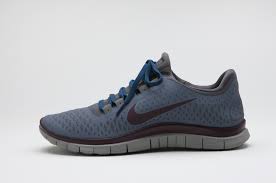Prescription: One Pair Nikes, Use PRN by Pat Conrad MD
Like many of you, despite formal training to the contrary, my brain tends toward the anecdotal when considering clinical situations. And like many of you – admit it! – esteemed readers, I too especially like studies that confirmed what I already thought to begin with. And so with those disqualifiers dispensed…
Last week the British Medical Journal reported on a study comparing the effectiveness of drugs to that of exercise. Researchers from the London School of Economics, Harvard Medical School and Stanford University considered four processes “where evidence has shown that exercise can have lifesaving benefits: secondary prevention of heart disease, stroke rehabilitation, treatment of heart failure and prevention of diabetes.”
“Researchers then compiled a list of the different classes of drugs people commonly take to manage these conditions, and ultimately came up with 305 randomized clinical trials to analyze.. The study involved 339,274 people, 15,000 of whom received physical intervention for their health conditions while the rest were included in drug trials.”
And what did they conclude? That exercise was as good as drug interventions for the people with coronary heart disease and for the prevention of diabetes; that exercise was more effective than drugs post-stroke; but diuretics, were more effective [than exercise] for treatment of heart failure.
The study authors were quick to state: “The results of our study by no means imply that people should stop taking their medications, especially without consulting their doctors.” They also did not note any evidence suggesting that exercise reduces mortality. The summary comment: “Exercise should be considered as “viable alternative to, or alongside, drug therapy.”
No, this study is not the slam-dunk I (unscientifically) wish for. And since I don’t know the funding source(s) for the research, I’m immediately suspicious that an overspent government would love to push this in a way to cut drug costs, inasmuch as some pharmaceutical syndicate is already hiring operatives to discredit the work. But what I have seen again and again in primary, urgent, and emergency care, is that regular vigorous exercise makes patients feel better, with less cost and a lower side effect profile. Lawyers, core measures, silly ass quality/patient satisfaction scores notwithstanding, I think this study suggests a way to add a little actual authentic medicine to improve quality of life.










One of the most difficult barriers to getting patients to take better care of themselves is the resistance of the patients themselves. So often they would rather take a pill than actually make any personal effort to control their disease. It can help to be able to say that in this study of over 300,000 patients, it showed that exercise works better than medications. It might not help much, but anything you can add to your arguments in favor of self care might improve one’s ability to persuade…